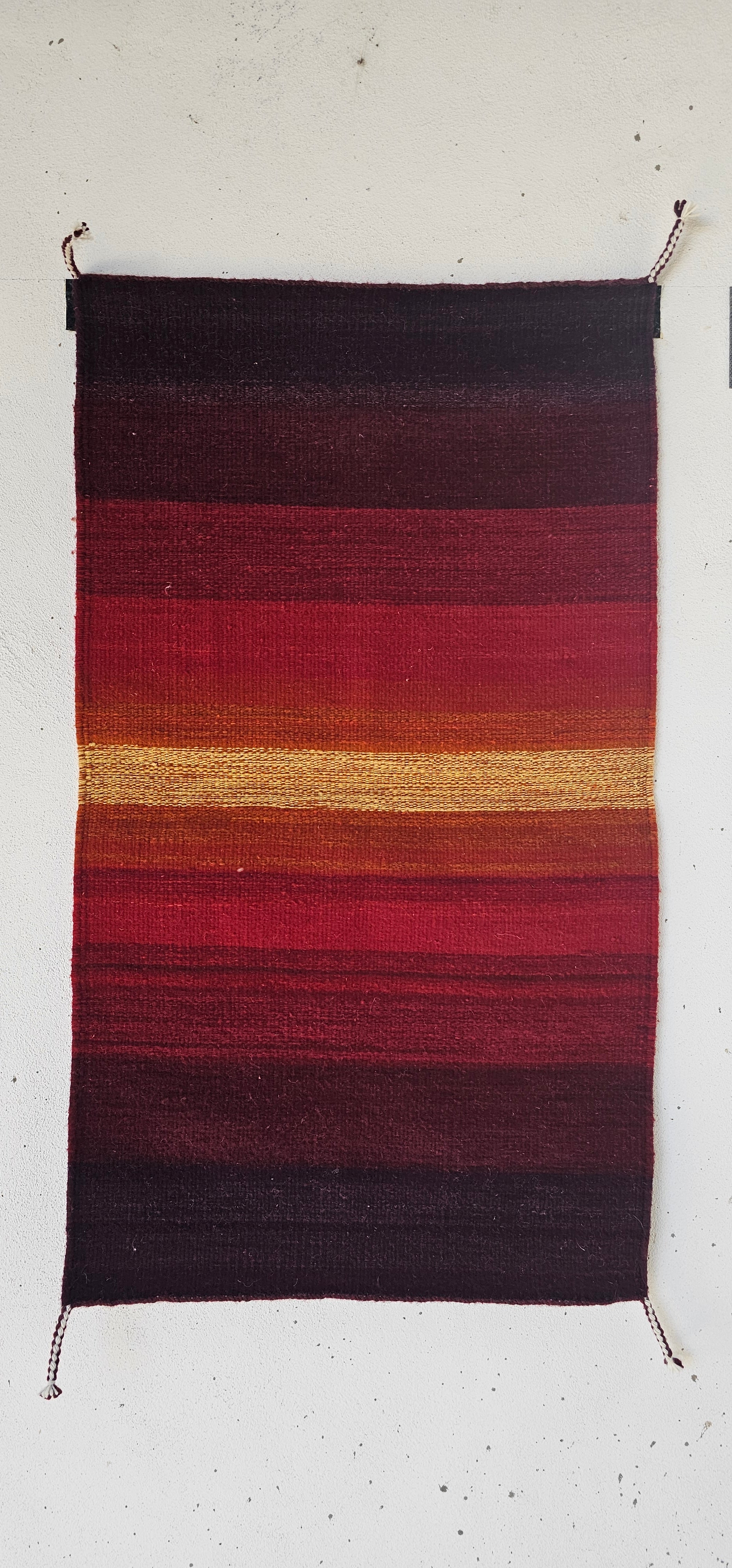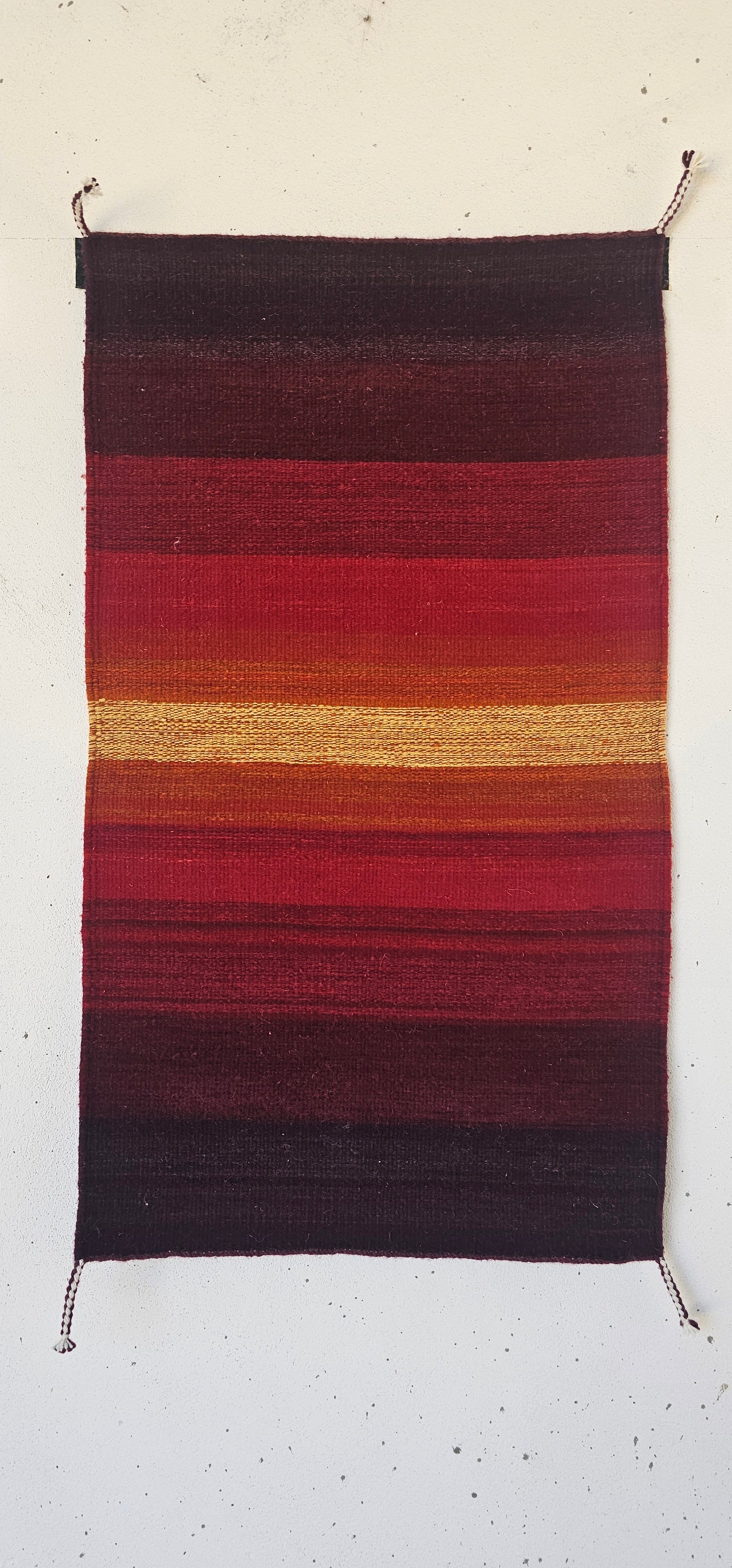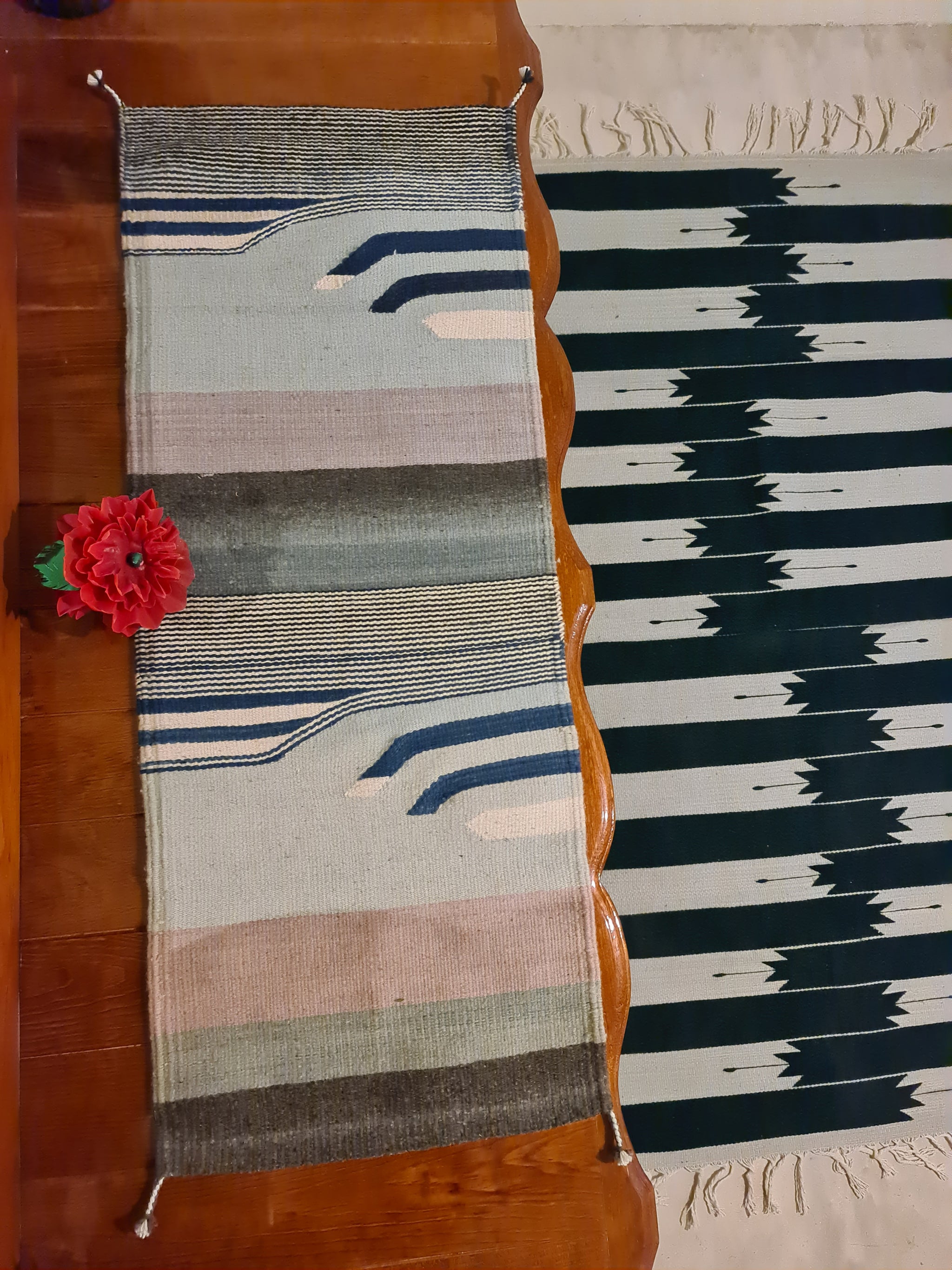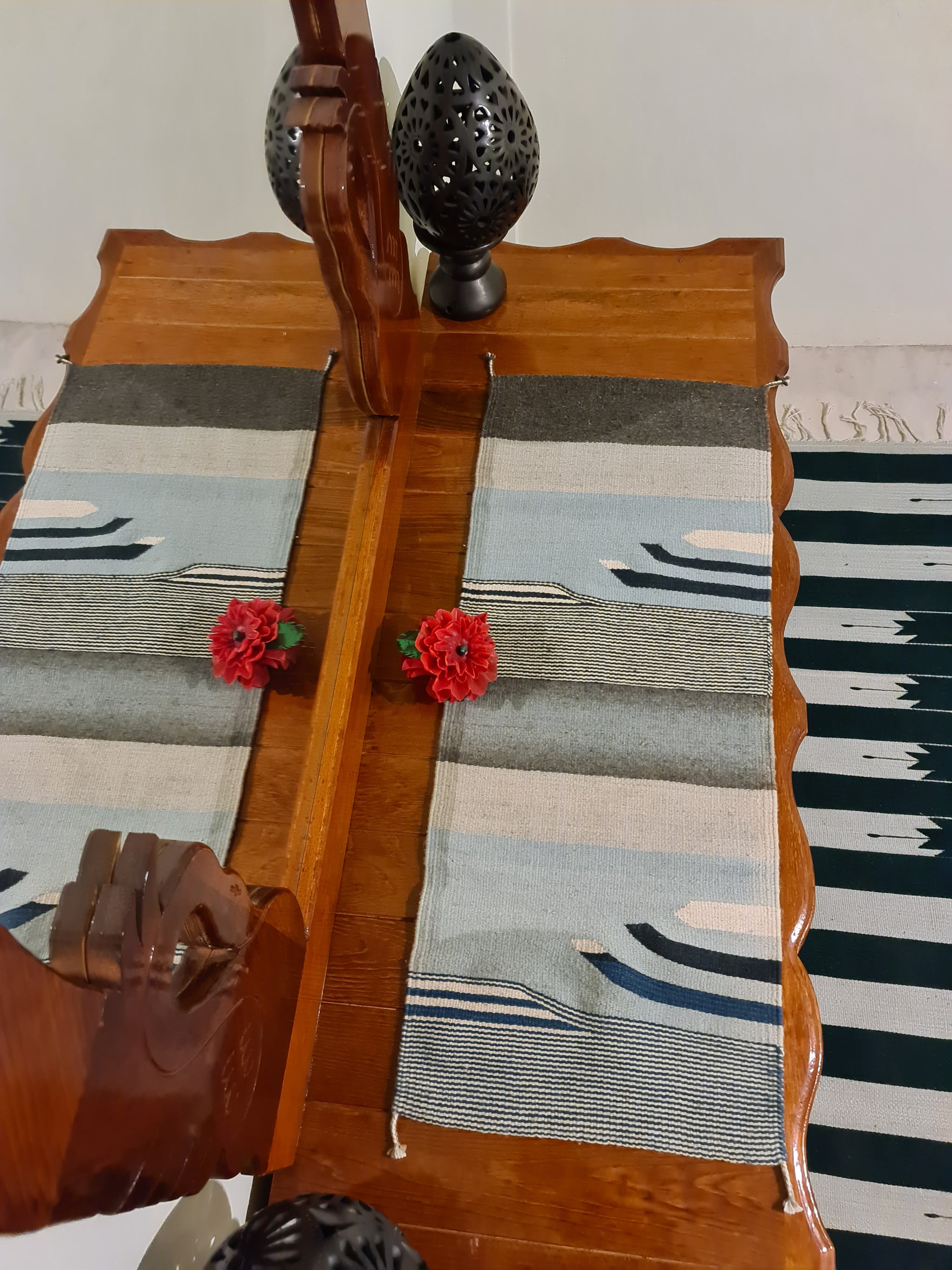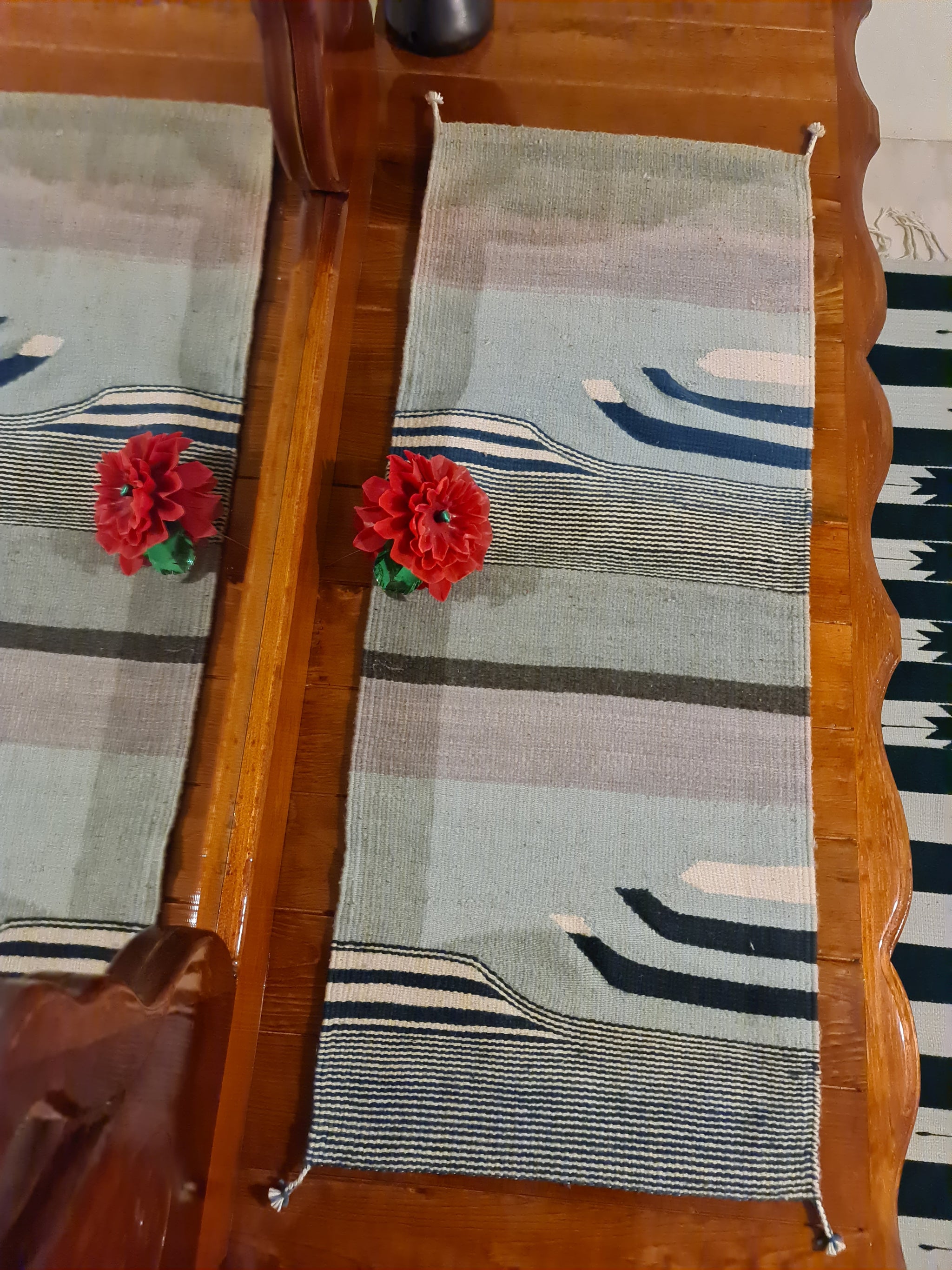Biguîdi: the dance of the moths
$ 1,200.00
Size: 30x60cm 4.9x8.2ft 12"x24"
Weaver: Zenaida, San Miguel del Valle
Dyer: Leonor Lazo González and Samuel Bautista Lazo
Materials and methods: Criollo sheep wool spun in the mills of Tianguistengo. Hand dyed using natural dyes: Béé (Dactylopius Coccus), Yauhtli (Tagetes lucida), Pomegrante skins and pecan husks/shells. Synthetic aniline dyes were used for the bright colors. Handwoven on a Zapotec style loom of the 16th century adapted from European styles. Woven using a 7 threads per inch reed and wool rayon blend for warp.
Design, patterns and symbols.
This rug depicts the moth pattern as the central motiff. Moth represents the knowñedge that comes with night. The Zapotec deity Bigiidy (2J) is the representation of Itzapapalotl of the Meshica mythology; she is the goddess Queen of Tlamoanchan where people who dye of water related deaths and during child birth go to. Itzpapalotl was prayed to during childbirth; she is the Godess of Midwives and parturient woman. In fact the Zapotec word Bigiidy comes from Bii (air) gui (fire) di(song) and is cognate with Bigiídi, which means to be sewn.
Itzapapalotl means Obsidian butterfly (obsidian arrows have the shape of a moth). She is associated with the moth Rothschildia Orizaba, an insect that is the messenger of death and the spirit of the deseased ones in todays indigenous tales. She is one of two divine two headed doe deers who temporarily transform themselves into women in order to seduce men and eat their hearts--quite a twist on the fact that obsidian arrows pierce the hearts of deer during hunting. Itzapapalotl is sometimes depicted with flowing hair and a femur, the bones represent the time resisting wisdom and knowledge that woman keep with rituals of fertility and transformation. The moth represents that knowledge that comes with night, with darkeness and wounds of transformation.
Share:
Related Items
Punta Cometa: fire tending
$ 4,600.00
60x100cm; 2x3ft Materials ans methods: criollo sheep wool hand dyed with colorfast aniline dyes using an exhaustive method. Handwoven on a Zapotec style loom of the 16th century adapted from European...
River Spirit
$ 3,110.00
Size: 40x100cm; 16in x 3.2ft Weaver: Zenaida Lopez from San Miguel del Valle Materials and Methods: Criollo sheep wool hand dyed by Leonor Lazo and Samuel Bautista using xiuhquilitl (indigo)...
Yaag Chei: tree of life
$ 5,500.00
Size: 60x100cm; 2x3ft Master Weaver: Samuel Bautista Lazo Materials and methods: criollo sheep wool spun in the mills of the Batalla family in Tianguistengo. Hand dyed yarns by Leonor Lazo using...








